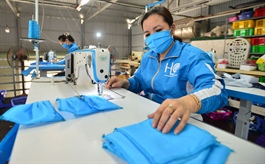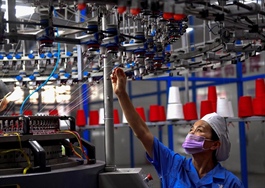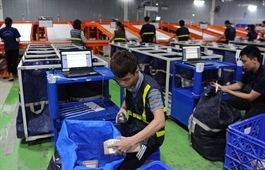Social e-commerce startup bags $1 mln seed funding from global investors
Social e-commerce startup bags $1 mln seed funding from global investors
Social e-commerce startup Mio has raised $1 million in seed funding co-led by two venture capital firms, Indonesia’s Venturra Discovery and Singapore’s Golden Gate Ventures.
The interface of Mio. Photo courtesy of Mio.
|
Other participants in the funding round include Singapore’s iSeed SEA and American investor Gokul Rajaram.
Vidit Aatrey and Sanjeev Barnwal, co-founders of Meesho, a social commerce unicorn in India, will also take part in the round and join Mio as advisors.
Mio was founded in June last year by Huynh Huu Trung, former associate of venture capital fund IDG Ventures Vietnam, Pham Hoang An, co-founder of logistics startup Scommerce, Le Anh Tu, and Pham Phi Long.
The four men decided to establish it after realizing that people in rural areas spend 67 percent of their online time on social media and messaging applications.
Mio is an e-commerce platform that mainly sells fresh groceries. It allows people, mostly rural women, to register to become its agents. They use social media channels such as Facebook, TikTok, Instagram, and Zalo to reach end consumers.
The products sold on the platform are provided by suppliers with a tie-up with Mio.
Mio aims to encourage women in rural areas to become micro-entrepreneurs, and has said it will provide them with training in selling and order management skills, besides ensuring product quality and reasonable prices.
The platform has hundreds of resellers, who it estimates can make an extra VND2-8 million ($86-347) a month.
The seed capital will be used for setting up distribution channels and hiring more employees for its technology and product teams.
It plans to add more product categories and personalization options.
According to Mio’s founders, most e-commerce platforms in Vietnam are prioritizing urban areas though rural areas account for 63 percent of the country’s population and 60 percent of GDP.
Logistics costs are high in rural areas due to underdeveloped transport networks and low population density, which is a challenge but also an opportunity for a pioneer in social e-commerce, they said.























